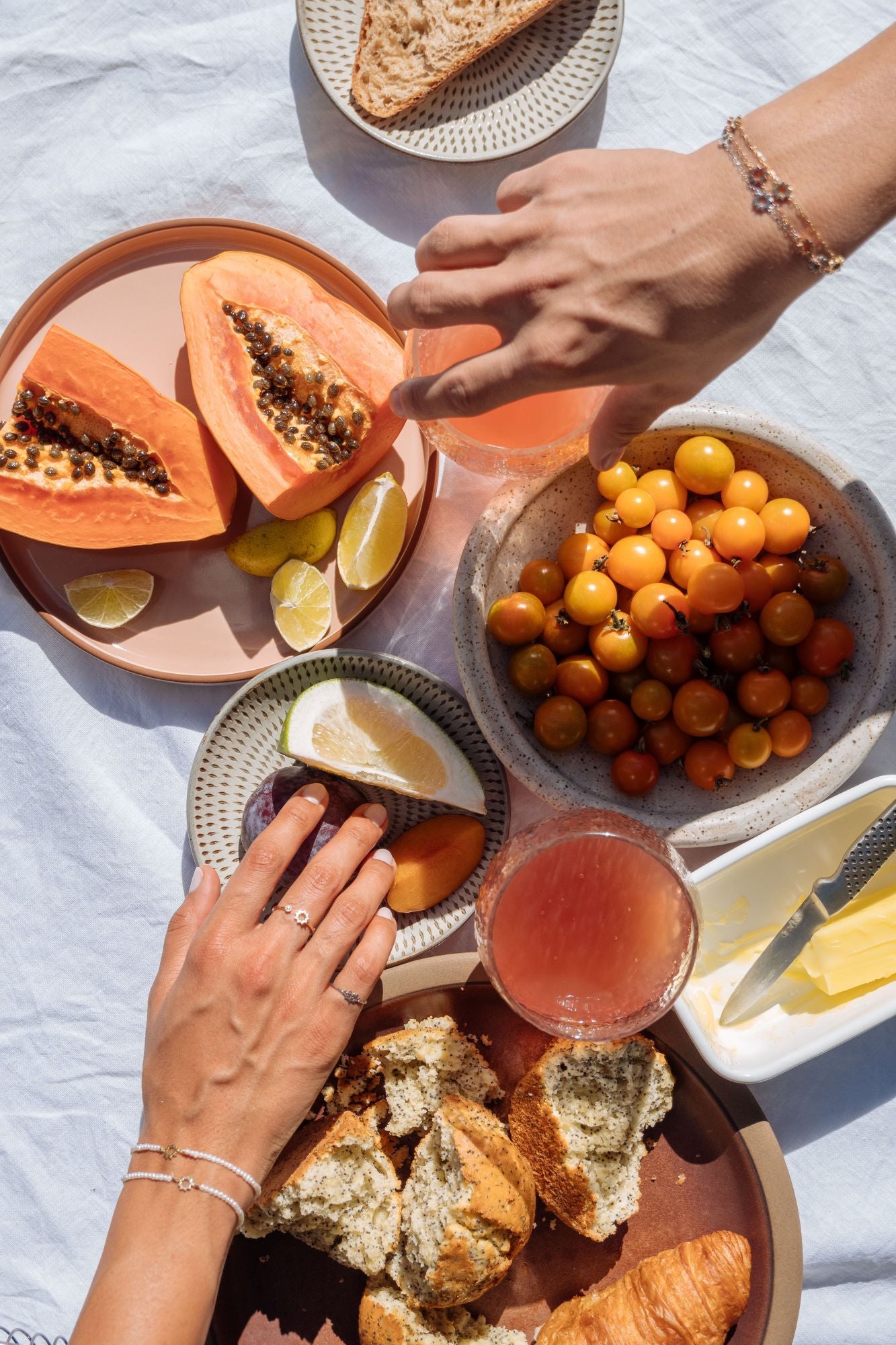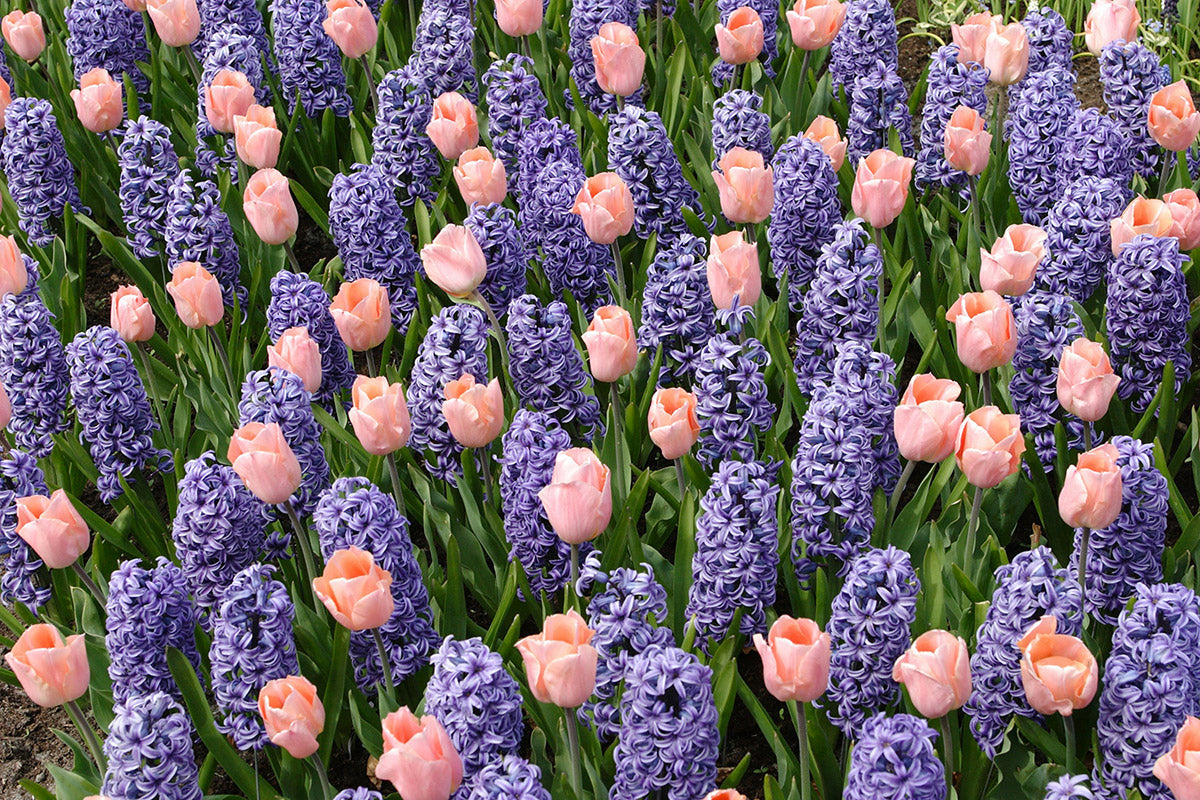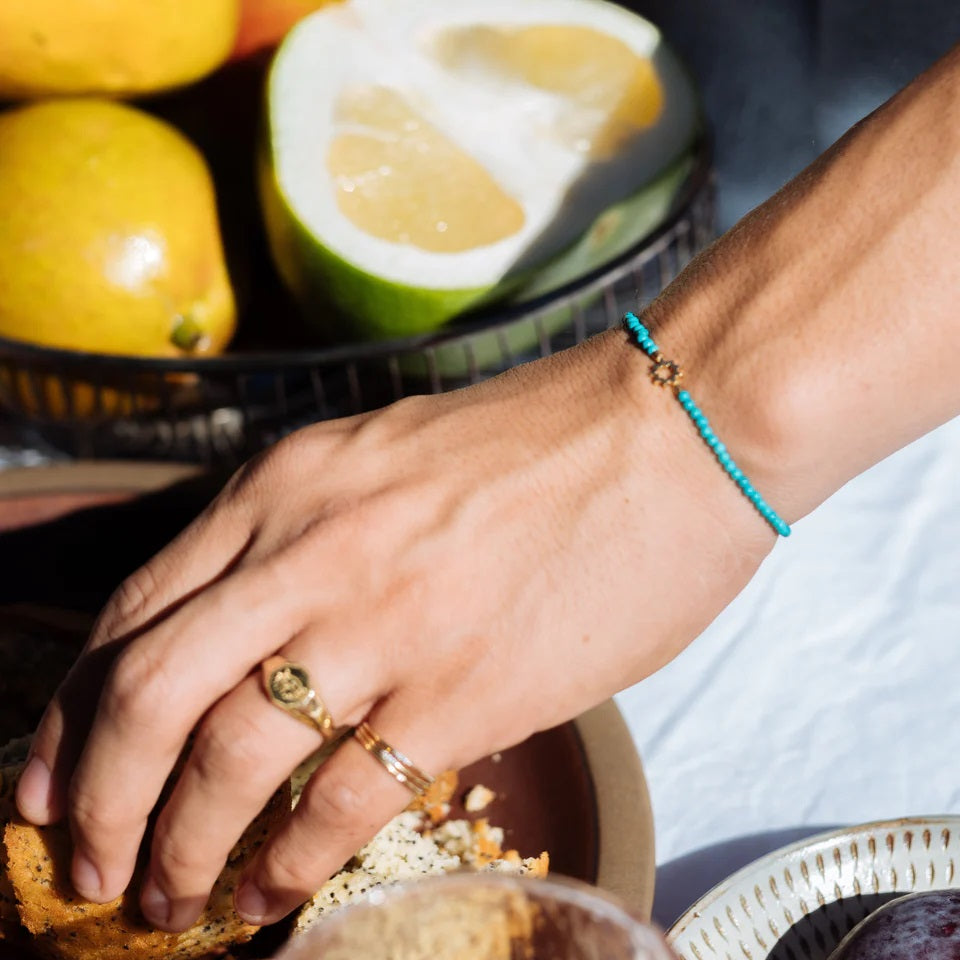
14KT Gold: What is it exactly and why do we use it?


Gold. So pretty. So shiny. But why the “14” part? What is KT? Is it a carat? Isn’t that for diamonds? Why not just use gold? These are a few questions we’ll be exploring today.
So we all know that gold is a metal that is solid at room temperature. It’s bright, yellow and very pretty. Unlike other metals, it doesn’t rust, tarnish or corrode...ever! Gold is a pretty soft metal so it’s easy to hammer, and it melts in fire so it can be cast into anything– jewelry, coins, you name it. It’s been used by humans for thousands of years, and will continue to be used for thousands more.
Because 100% pure gold is super soft, it can change shape easily just by pressing on it very firmly. That’s not good when it comes to using gold for jewelry, coins and currency that is meant to last for a long time. In order to make gold harder (so that it’s harder to change its shape once the jewelry or coin has been made), it is mixed with other metals that are even harder. The measuring system used to determine how much actual gold vs other metals are in the mixed piece is called the Karat scale. That’s different from the Carat scale which measures the weight of diamonds. So confusing!
So the Karat scale ranges from 0-24, and it’s abbreviated as “K” or “Kt”, with 24K gold meaning the same as 100% pure gold (technically it’s 99.95% pure gold, but close enough). So 12K gold represents 12 out of 24 Karats = 12/24 = 50%. This means 12K gold carries 50% pure gold and 50% mix of other metals (alloy), and 18K gold carries 75% gold and 25% metal alloy.
In modern-day society, 14K gold is often used which carries 58.3% pure gold. This percentage of gold mixed with alloy creates a very hard and durable piece that is usable for everyday wear. It also scratches less easily than the higher 18K gold. It is used primarily in fine jewelry such as necklaces, rings, bracelets and earrings.
The ingredients (composition) of the alloyed metal vary from goldsmith to goldsmith. The different metals used include silver, copper, zinc and nickel. At One Thousand Years Jewelry, we use hypoallergenic nickel-free alloy because nickel is a common allergen that can cause irritation and rashes when worn frequently.



